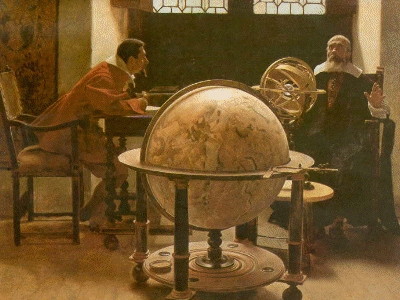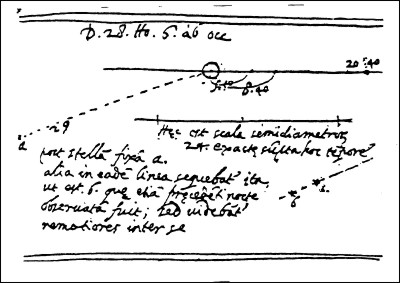Neptune may have been discovered by Galileo 400 years ago

It is the eighth planet of the solar systemNeptuneIsYurban RouverierBased on their predictions in 1846Johann Gottfried GalleIt is said that it was discovered by the fact, in fact it was 233 years ago in 1613Galileo GalileiIt is observed by Galileo himself that there is a high possibility that Galileo himself was aware of discovering the planet.
"But the earth is still around,"Giant motion theoryIt is Galileo famous for supporting the isochronism of the pendulum (nature swinging with a certain cycle) · Falcon's law was discovered, but it may be that new achievements will be recognized over 360 years after death not.
Details are as below.Galileo's Notebooks May Reveal Secrets Of New Planet
Neptune is the eighth planet from the closest to the sun. It is a massive ice planet whose mass is about 17 times that of the Earth, with a surface temperature of minus 218 ° C.

Professor David Jamieson of the University of Melbourne's Department of Physics is investigating Galileo notes about 400 years ago and now it is evident that Galileo was aware that Galileo observed a new planet called Neptune and that it is a planet I found it in this note. This hypothesis was announced in the Australian Physics magazine. If true it means that the first planet discovered by mankind was a Neptune other than an observable planet (Mercury, Venus, Mars, Jupiter, Saturn) that was known from ancient times (Uranus discovery is 1781 Year).
Galileo observed the satellites of Jupiter from 1612 to 1613, and keeps the record on the note, but among those over several nights the position of the star not on the current astrophysics catalog is near Jupiter It is recorded in.
"I know that this unknown star observed by Galileo actually was Neptune for decades.It is proved by the computer simulation that the accuracy of the observation of Galileo is proved.The Neptune It should have looked like a dark star at almost the same position as Galileo recorded, "said Professor Jamieson.
Observation record of Jupiter and three satellites by Galileo on January 28, 1613. Neptune is recorded as "b" in the lower right. Galileo initially thought that this star was a star, but I noticed that I moved from the position of the night before and I am writing down.

And I think that this time Jamieson's proof that Galileo was aware of the discovery of the planet is the unexplained black point recorded in the note of January 6, 1613.
Black spots are recorded where Neptune is supposed to be.

Professor Jamieson said, "This" point "is based on the observation of Galileo as before, but at that time it seemed like a common star at that time, so as to go back to the notes of Neptune, which I did not care about (as compared to January 28) Jupiter I think that it would turn out that it was drawn in a position close to the center of the building. If this point on the note on January 6 was actually written on 28th January, there is evidence of what Galileo himself thought might have discovered a new planet and The professor advocates that he can say it.
With the technology of trace element experts from the University of Florence who had analyzed the ink of Galileo's manuscript before, it may be possible to identify up to the date when this "point" was drawn, this analysis will be conducted in October of this year It may also be implemented.
"Galileo may have hypothesized that it was a new planet when I saw a celestial body that crossed sight during Jupiter's observation in January 1613," Professor Jamieson said. "If this were true, Galileo would have discovered Neptune 234 years ago before the official discovery."
Also, it seems that there are still many interesting evidences sleeping in Galileo letters and notes. "When Galileo made an amazing discovery with a new telescope, there was a custom to send sentences and anagrams that were encrypted so that they could be proved later as being the first discoverer to their colleagues.Half of VenusWe also do it when observing. Perhaps it's written somewhere a cipher indicating that we have found a new planet, "the professor has speculated.
Related Posts:
in Science, Posted by darkhorse_log







